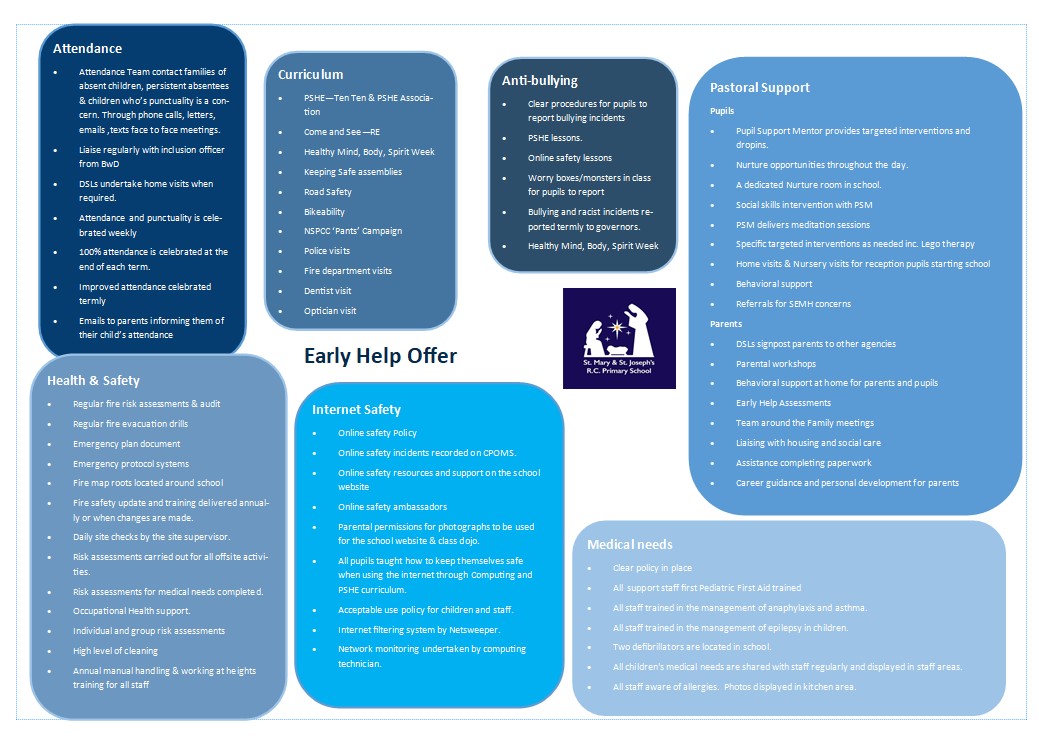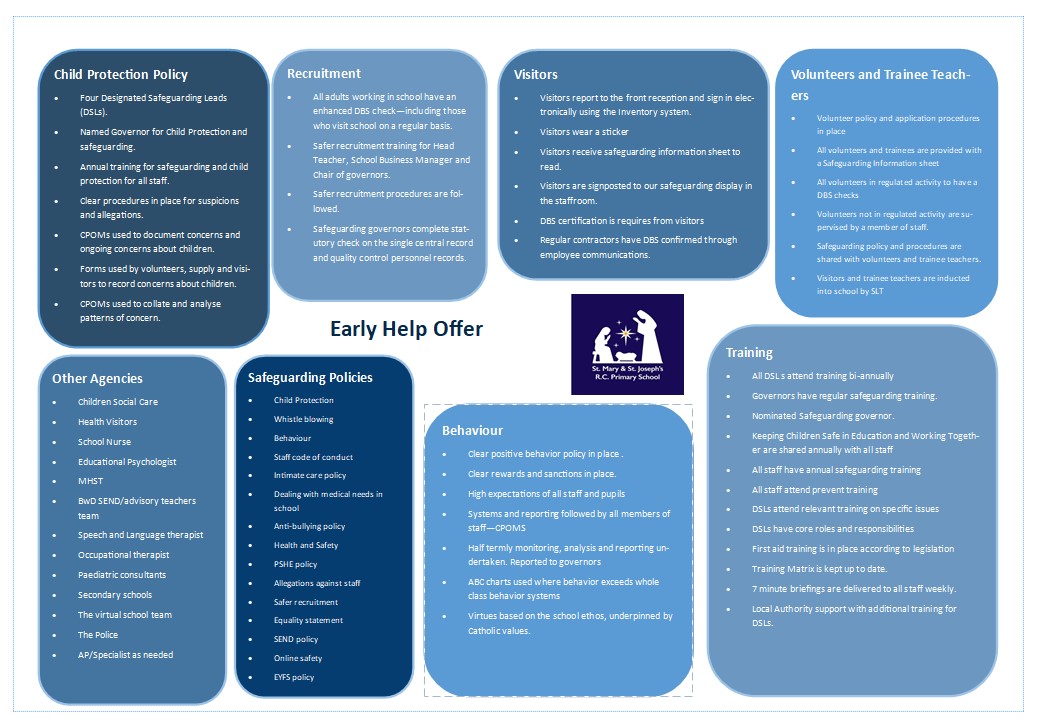Safeguarding
Safeguarding Children is Everybody's Responsibility
What is safeguarding?
Safeguarding is the action that is taken to promote the welfare of children and protect them from harm.
Safeguarding means:
- protecting children from abuse and maltreatment
- preventing harm to children’s health or development
- ensuring children grow up with the provision of safe and effective care
- taking action to enable all children and young people to have the best outcomes.
Child protection is part of the safeguarding process. It focuses on protecting individual children identified as suffering or likely to suffer significant harm.
What to do if you are concerned that a child is being abused and neglected?
If you have any concerns about a child and you feel that they are being neglected, abused or at risk from harm then you should consider making a referral to Blackburn with Darwen Children's Advice and Duty Service (CADS) for advice. This information is confidential. You can ring Monday to Friday 08.45am - 5pm on 01254 666400.
If you need to call outside these hours then please contact the Emergency Duty Team on 01254 587547
Child Protection and Safeguarding Policy 24-25
St Mary & St Joseph's takes part in Operation Encompass. Please read the attached letter.


Safeguarding Children within the Curriculum
Handling dangers outside school
- Children are taught about the potential dangers associated with the use of ICT and the internet. They are taught that they should switch off the monitor immediately, if they see anything they don’t like.
- Children are taught in an age-appropriate way about the importance of Bonfire night safety and the ways in which they can enjoy themselves safely.
- The Fire Crew come to school every year to speak to Year 2 and Year 6 about fire safety.
- Year 3 learn about water safety in their swimming lessons
Travelling to and from school
- Cycle training is provided in Year 6 in order to encourage a safe and healthy way to travel to and from school.
- Community Support Officers come into school to discuss the importance of car seats and seatbelts.
Supporting children’s emotional needs
- The Worry Box / Monster is used to support children with any problems they may identify. Children post worries in the box and these will be addressed by the Pupil Support Mentor. Children understand that in most cases the discussion remains private, but where the adult is concerned for their safety, the discussion will be reported to the Headteacher.
- Our Pupil Support Mentor is ELSA trained and delivers bespoke programmes to children with emotional needs.
- All staff are ACE aware
PSHE
We aim to develop and nurture the whole child in body mind and spirit through:
- A robust RHE curriculum (Ten Ten)
- Circle time
- Assemblies
- Dedicated weeks: Healthy Mind, Body and Spirit Week, Children's Mental Health Week, Careers, Financial Literacy
- Raising money for charity
Pupil Voice
Pupils voice their opinions through all the pupil councils we have in school:
- General Council
- Digital Leaders
- Sports Council
- Eco Council
Please see our Safeguarding Matrix as to when we cover other aspects of Safeguarding
SMSJ Safeguarding Matrix
-
Lancashire Online Safeguarding Website Use this link to access useful safeguarding information for parents and carers
Prevent Risk Assessment
Introduction
Schools have a duty of care to their pupils and staff which includes safeguarding them from the risk of being drawn into terrorism - this includes not just violent extremism but also non-violent extremism, which can create an atmosphere conducive to terrorism and can popularise views which terrorists exploit. Schools should be safe spaces in which children and young people can understand and discuss sensitive topics, including terrorism and the extremist ideas that are part of the terrorist ideology and learn how to challenge these ideas. School staff are particularly important as they are in a position to identify concerns early and provide help for children, to prevent concerns from escalating. Schools and colleges and their staff form part of the wider safeguarding system for children. This system is described in statutory guidance Working Together to Safeguard Children (2015) and Keeping Children Safe in Education (2021). Schools and colleges should work with social care, the police, health services and other services to promote the welfare of children and protect them from harm. Radicalisation is listed as a specific safeguarding issue within this statutory guidance and is addressed within the Government Prevent Strategy. The Counter-Terrorism and Security Act 2015 places a duty on Schools to ‘have “due regard to the need to prevent people from being drawn into terrorism”.
The Prevent Strategy has three main objectives:
- Respond to the ideological challenge of terrorism & the threat we face from those who promote it;
- Prevent people from being drawn into terrorism and ensure that they are given appropriate advice and support;
- Work with sectors and institutions where there are risks of radicalisation which we need to address
